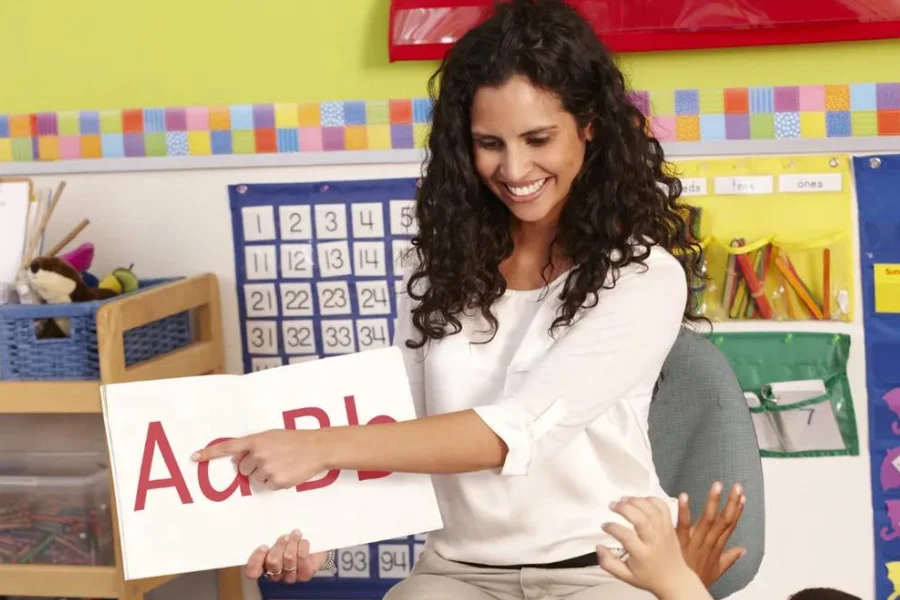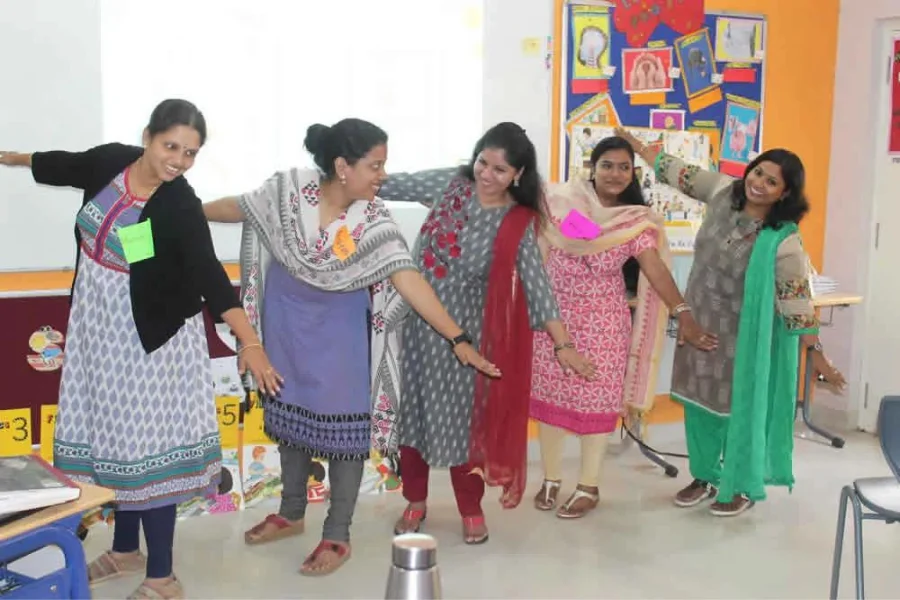Phonics for Preschooler

Source: rackcdn
Phonics for Preschooler
Phonics for Preschoolers is an important stage in the voyage of early teaching. This method of learning not only improves a youngster’s capability to read but also provides a robust substance for their complete language improvement. By incorporating Phonics for Preschoolers into their daily life, young students can more effortlessly decode words and sounds, stonework the way for better literacy expertise.
Comprehending the importance of Phonics for Preschoolers is critical for parents and teachers alike, as it provides an operative and attractive technique to familiarize young brains with the domain of letters and sounds. Through this approach, offspring develop a keen interest in language nuances, nurturing a love for reading and learning from an initial age.
Table of Content

Source: scholastic
How to Teach Phonics to Preschoolers?
Phonics for Preschoolers is an essential step in their early educational voyage. It’s about preparing students with the tools they require to start reading and accepting language. The procedure, however, can seem frightening. Here in this article, we outline operative approaches to Teach Phonics to Preschoolers, safeguarding that knowledge is both entertaining and impactful.
Here is ‘How to Teach Phonics to Preschoolers?’:
Start with the Basics
Familiarize Phonemic Consciousness
Before plunging into Phonics for Preschoolers, it’s important to grow their phonemic alertness. This includes assisting them understand that words are prepared up of unlike sounds. Humble games like rhyming and segmenting sounds in words can be a great start for Phonics for Preschoolers.
Alphabet Recognition
Ensure that the child is familiar with the alphabet. Use colorful charts or magnetic letters as visual aids. This familiarity is a prelude to connecting sounds with letters.
Engage with Sounds
Sound-to-Letter Corresponding
An important part of Phonics for Preschoolers is supporting them in connecting sounds to consistent letters. Initiate with simple consonants and short vowel sounds.
Use Phonics Games
Games can make Phonics for Preschoolers more engaging. Puzzles, matching games, and letter hunts are excellent tools for making learning interactive.
Progress to Blending
Formulate Simple Words
Once offspring can associate letters with the sounds, the next stage in Phonics for Preschoolers is to instruct them in merging these sounds to create words.
Encourage Word Formation
Start with simple, three-letter words. Gradually increase the complexity as their confidence increases.
Read Together
Collaborative Reading Sessions
Reading tales together is an eccentric way to strengthen phonics learning. Indicate books with simple words that permit preschoolers to apply their phonics information.
Point Out Phonics Elements
During reading sessions, emphasize the phonics elements in words. This strengthens their understanding and application.
Consistency and Patience
Regular Practice
Regular practicing is the key to Phonics for Preschoolers. Short, consistent sessions are more effective than infrequent, long sessions.
Patience is Vital
Remember, each child learns at their own pace. Patience and encouragement are crucial in teaching Phonics to Preschoolers.
To Teach Phonics to Preschoolers efficiently, one must merge organized learning with playful doings. This method not only makes Phonics for Preschoolers pleasant but also provides the varied learning styles of young offspring. By following the above-mentioned steps, teachers and parents can deliver a rock-hard basis in Phonics for Preschoolers, setting them on a route to becoming confident and proficient readers.
For any Phonics Course-related info, dial +919869866277 or +919869546913.
Quickly download the Phonics Course brochure Here.

Source: phonicspower
Best Phonics Courses for Teachers
In the energetic domain of early childhood education, the part of Phonics for Preschoolers is vital. As a teacher, finding the Best Phonics Courses for Teachers is important to ensure that you’re prepared with the right tools and education. Vidhyanidhi Education Society (VES) stands out as an ideal in this profession, providing a program that is both inclusive and tailor-made for ambitious phonics educators.
Key Features of the Course:
- Procedures to Start Your Phonics Programmes: This essential feature of the Best Phonics Courses for Teachers offered by Vidhyanidhi Education Society (VES) prepares you with thorough plans and methods to initiate your voyage as a phonics teacher for young students.
- Teachers Guidebook: A priceless reserve, this reference book is a treasure trove of knowledge, guiding educators through the nuances of phonics education.
- 300+ Equipped-to-Use Printable Worksheets: Jump-start your phonics teaching occupation with a widespread group of worksheets, structured to improve the learning knowledge of preschoolers.
- 42 Printable Flashcards: These visually stimulating tools are a great way to engage students and reinforce phonics concepts.
- Word Bank with 650+ Words: This comprehensive collection includes digraphs, alternative vowel sounds (like ai, oa, ay, ow, ei, etc.), and CVC words, making it an essential resource for every phonics teacher.
- Additional Teaching Aids: The course provides various hand-outs to support and enrich your teaching methods.
- Day-Wise Lesson Execution Tips: The Best Phonics Courses for Teachers should always include practical advice on implementing lessons effectively, and this course does just that.
- Widely Accepted Certificate: Upon completion, educators receive a certificate that is recognized and respected globally, enhancing their employability and credibility.
- 18 Hours of Intensive Training: This compact yet thorough training ensures that teachers are well-versed in phonics education.
- UK-Based Synthetic Phonics Teaching Methodology: The course follows a proven and popular approach, ensuring that teachers are learning the most effective methods.
- Audio-Visual Teaching Aids: These modern tools make the learning process more engaging and effective for students.
- Jingles, Stories, and Actions for Sound Demonstration: This creative approach helps in cementing phonics concepts in young minds.
- Practice All 42 Sounds: Teachers get to thoroughly practice and understand all letter sounds and digraphs, which is vital in phonics education.
- Mock Drills and QA Sessions: These components of the course ensure that teachers are well-prepared to handle real classroom scenarios.
The Best Phonics Courses for Teachers, especially those offered by Vidhyanidhi Education Society (VES), are designed to transform educators into proficient phonics instructors. These programs not only deliver the required educational materials but also aim at applied, hands-on teaching. By the completion of the program, teachers are not just educated; they are self-confident, resourceful, and ready to make an important effect in the profession of early childhood education.
Phonics for Preschooler
“Join VES’s Phonics Course & transform teaching dreams into reality!”
For any Phonics Course-related info, dial +919869866277 or +919869546913.
Quickly download the Phonics Course brochure Here.
FAQs
What is Eligibility to Join Phonics Courses for Teachers?
Eligibility for Phonics Courses: Typically, a basic degree or experience in teaching. Varies with institutes; some may require specific qualifications.
What is Course Content for Phonics Courses for Teachers?
Course Content: Covers phonemic awareness, phonics instruction techniques, teaching methodologies, lesson planning, and assessment strategies.
Are Phonics Courses for Teachers Available Online?
Online Availability: Yes, many institutes like VES offer Phonics Courses online, providing flexibility and access to a wider range of participants.




